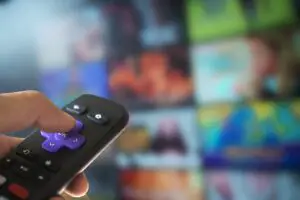When confronted with the decision of selecting a television brand, the options of Hisense and Samsung often loom large. Both brands have garnered significant popularity, prompting the perennial question of which one holds the edge. To shed light on this deliberation, let’s delve into the attributes of each brand.
When confronted with the decision of selecting a television brand, the options of Hisense and Samsung often loom large. Both brands have garnered significant popularity, prompting the perennial question of which one holds the edge. To shed light on this deliberation, let’s delve into the attributes of each brand.
Is Hisense TV Good? Hisense has firmly established itself as a reputable TV manufacturer, particularly in recent years. One of the standout aspects of Hisense is its pricing strategy, where it frequently shines. Hisense products often manage to offer comparable or even superior specifications at a notably lower cost compared to counterparts like Samsung or LG. This cost advantage can occasionally amount to savings of over $100, making Hisense an enticing choice for budget-conscious consumers.
Durability of Hisense Smart TV The durability of a Hisense smart TV aligns well with its competitive pricing. While not commanding the same premium price tags as some of its competitors, the quality of Hisense TVs remains commendable. With proper care and usage, customers can expect a Hisense TV to last for around 7 years when utilized at its optimal settings. This durability aligns with industry standards, and in more controlled environments, such as formal settings, the lifespan of a TV from various providers is typically projected to be around 10 years.
Sound Quality of Hisense and Samsung Sound quality constitutes a pivotal aspect of TV performance. In the realm of sound technology, Hisense prioritizes technologies like DBX Total Surround and DBX Total Sonics. Samsung, on the other hand, boasts the Object Tracking Sound technology. Despite these technological nuances, the distinctions in sound quality between various Hisense and Samsung models, particularly in their entry-level budget variants, are minimal. This convergence suggests that both brands manage to deliver satisfactory sound experiences across their product offerings.
Voice Assistants The realm of voice control and assistants is another arena of significance. For Hisense TVs, the majority of which run on the Android TV operating system, seamless voice control is facilitated through the reliable Google Assistant. Moreover, some Hisense TV models offer compatibility with Amazon Alexa, allowing users to link their devices for voice commands through Amazon’s voice assistant.
Hisense vs. Samsung: Overview

Hisense, a Chinese company, has been active in the television market since 1969, providing a variety of TV options tailored to various requirements and budget considerations. In contrast, Samsung, a Korean corporation established in 1938, has a significant presence in the electronics industry. Renowned for their top-notch TVs equipped with advanced features and cutting-edge technologies, Samsung holds a reputation for delivering high-quality products.
Is Hisense TV Better?
While seemingly straightforward, this question’s answer eludes those who solely focus on TV specifications. The perspective of professional reviewers sheds light on this matter. Notably, Hisense products receive commendable evaluations from experts in the field. Surprisingly, Hisense often manages to provide comparable features to more renowned brands.
Yet, Hisense’s distinct advantage lies in its pricing strategy. Remarkably, Hisense products frequently present equivalent or even superior specifications at a notably lower cost compared to offerings from industry giants like Samsung or LG. A case in point is the Hisense A6G 4K Android TV, which stands as the most affordable 70″ TV option within the $500 price range. This cost-effectiveness elevates the allure of Hisense’s offerings, making them a compelling choice for budget-conscious consumers.
Which TV manufacturer is the best?
Several features that warrant consideration:

1. Resolution: Presently, 4K or UHD resolution has become the standard, offering enhanced visual quality at increasingly affordable price points. Typically, pricing escalates in tandem with higher resolution options. Notably, Samsung even offers an 8K model at the upper echelon of the price spectrum.
2. Refresh Rate: Formerly, a refresh rate of 60FPS was standard. In contemporary times, a majority of devices incorporate a minimum of 120FPS, facilitating smoother transitions for an enhanced viewing experience.
3. Smart Connectivity: An array of operating systems, including Android OS, Roku OS, and Amazon TV, empower seamless streaming from diverse providers, eliminating the necessity for supplementary hardware.
4. HDR Picture: HDR technology enriches scenes with lifelike and vibrant colors. Once a feature exclusive to pricier devices, HDR has made its way into more cost-effective models.
5. High-Quality Sound: Elevated sound experiences like THX and Dolby sound options endeavor to replicate a home theater ambiance. Although costs for these advanced sound systems have decreased recently, they continue to be sought after by buyers across different price points.
Conclusively, determining the superior brand remains intricate, as each aforementioned feature is embedded to some degree across various manufacturers. The ultimate verdict on the best TV brand hinges on factors such as personal brand inclinations, budget constraints, and essential features, unique to each individual consumer.
How Long-Lasting Is a Hisense Smart TV?
With regular usage, Hisense Televisions exhibit a commendable lifespan ranging from 7 to 9 years. To optimize longevity, it’s advisable to power off the TV for a minimum of 4 to 6 hours daily. This practice facilitates thorough cooling of the screen, contributing to the TV’s prolonged operational span.

This longevity aligns with the industry norm, wherein users can typically expect TVs to endure for approximately 10 years, contingent upon usage patterns. The TV’s lifespan is intricately linked to the performance of its lighting bulbs, which play a pivotal role. Concurrently, the hardware underpinning the TV’s myriad smart capabilities influences this span.
However, it’s crucial to note that the advanced features integrated into the TV may become outdated over time, particularly as the device ages. Upgrades for such features might not be feasible as the TV matures. Despite these nuances, Hisense remains competitive in the TV market, producing products that closely rival those of its competitors.
Who Has Better Sound Quality Between Hisense and Samsung?
Both Hisense and Samsung consistently deliver TVs with sound quality that meets or exceeds average distortion and frequency response standards. Both companies incorporate a range of audio-enhancing technologies into their TV offerings.
In the realm of sound quality, both Hisense and Samsung excel, providing noteworthy audio options. Hisense’s TVs are typically equipped with built-in speakers that render audio with clarity and precision. Conversely, Samsung’s TVs are celebrated for their immersive and rich sound quality.
Nonetheless, Samsung gains an upper hand in this domain due to their incorporation of advanced sound technologies such as Dolby Atmos and Q Symphony. These innovations provide viewers with a genuinely cinematic auditory experience. On the whole, while both brands uphold a standard of sound quality that is commendable, Samsung’s integration of cutting-edge sound technologies positions it as a preferable choice for individuals who prioritize top-notch audio performance.
Voice Assitant Comparison
When delving into voice assistants, both Hisense and Samsung provide distinct options for users. Hisense integrates Amazon Alexa into its TVs, empowering users to effortlessly control their TV through voice commands. Moreover, Alexa extends its functionality to encompass managing other smart home devices, playing music, and responding to inquiries.

On the opposing end, Samsung introduces its proprietary voice assistant, Bixby. Similar to Alexa, Bixby empowers users to control the TV using voice prompts, manage smart home devices, and execute diverse tasks. Furthermore, Samsung’s TVs extend compatibility to popular voice assistants like Amazon Alexa and Google Assistant. While both brands present credible voice assistant solutions, Samsung’s Bixby boasts a more seamless integration within its wider spectrum of products and services.
This integration implies that existing Samsung users will experience a sense of familiarity and smooth interaction while using Bixby on their TV. Conversely, individuals entrenched in the Amazon Alexa ecosystem might lean towards Hisense’s TVs as their preferred choice. Ultimately, the decision hinges on the user’s pre-existing ecosystem allegiance and their preferences regarding voice assistant integration.
Wrapping it up
In recent times, Hisense has emerged as a notable contender in the television industry. Their offerings mirror those of more established manufacturers like LG and Samsung. What distinguishes Hisense is their emphasis on durability coupled with often more budget-friendly prices. Determining whether they surpass their Samsung counterparts is a complex proposition.
Ultimately, the pivotal factors are your budgetary constraints and brand preference. Opting for Hisense presents an opportunity to acquire a quality product at a reasonable cost, especially for those willing to explore a relatively young company.
In the grand scheme, both brands possess strengths and weaknesses. Hisense is renowned for delivering commendable picture quality and cost-effectiveness, though it occasionally lacks in the realm of smart TV features. On the flip side, Samsung offers superior picture quality alongside exceptional smart TV functionalities, albeit at a higher price tag.
In essence, the decision between Hisense and Samsung boils down to individual inclinations and priorities. If your priority is top-notch picture quality and you’re willing to invest a bit more, Samsung stands out as the preferred choice. Conversely, if you’re working within a constrained budget and seeking excellent value for your expenditure, Hisense emerges as a more fitting option.
You May Also Enjoy Reading: Where Are Hisense TVs Made? [Not CHINA!]
FAQs
Is Hisense a reputable TV manufacturer?
Answer: Hisense TVs are often recognized for providing excellent value for their cost, making them a cost-effective choice. Generally, opting for a Hisense TV is a wise decision due to its impressive value proposition compared to other TV manufacturers. Hisense TVs perform well in various lighting conditions, boast a solid smart platform, and even offer additional features for gamers.
Is Hisense a subsidiary of Samsung?
Answer: No, Hisense and Samsung are distinct and separate brands. Hisense is an established electronics and major appliance company headquartered in Qingdao, Shandong Province, China. It operates as a state-owned entity with publicly listed subsidiaries. Hisense’s origins trace back to producing radios during the early stages of the technology’s development.
Which TV brands are known for durability?
Answer: Samsung, Sony, LG, and Panasonic are renowned for producing TVs with longer lifespans. However, with proper maintenance, brands like Vizio and Sharp are also capable of offering satisfactory durability. Ultimately, the choice between these brands still depends on the preferences of consumers like yourself.

